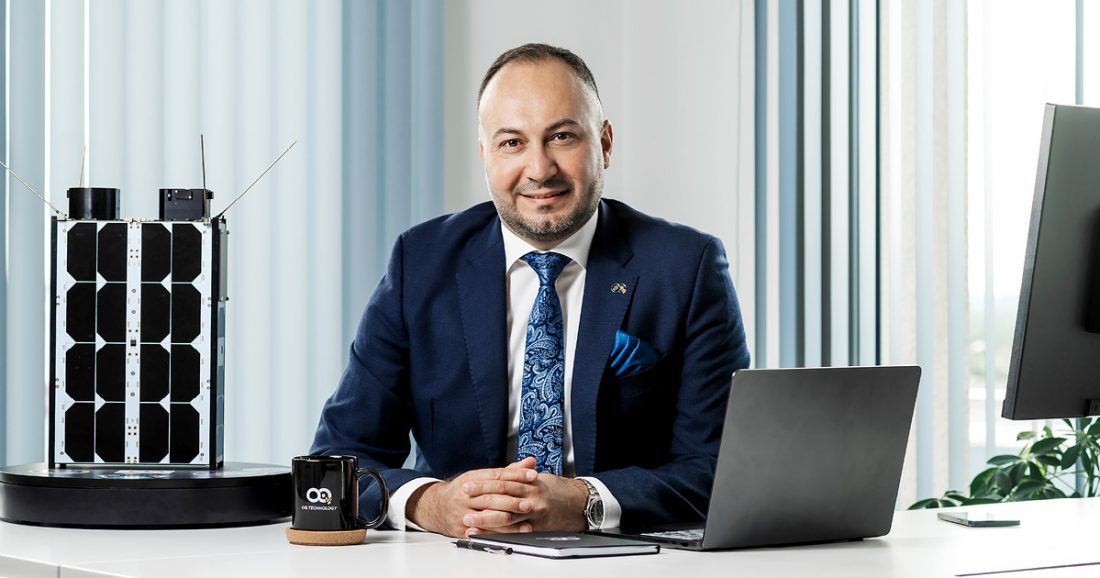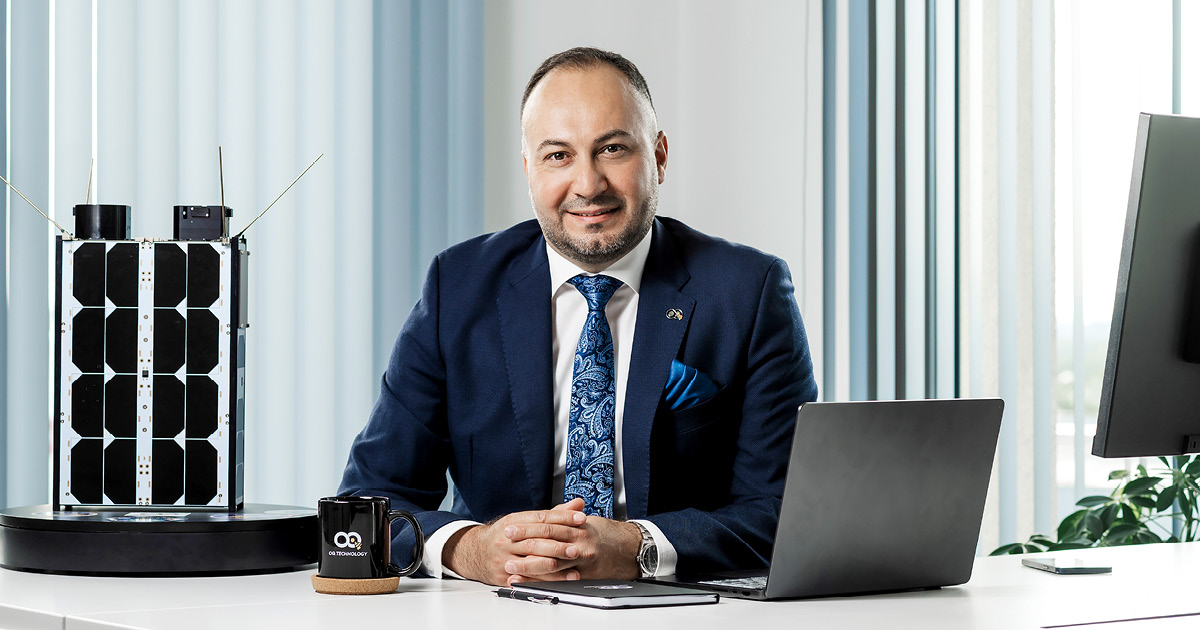One quirk of modern telecommunications that defies belief is a weak signal. It’s hard to accept that there are patches of today’s world where the invisible phalanx of cellular signals cannot penetrate, and yet it always seems to happen at the worst possible time.
Even more mystifying is that none of the tech giants that control so much of the way we live today have done something about it. Until now.
“Our hybrid satellite-cellular solution is indeed a game-changer in the IoT connectivity landscape,” says Omar Qaise, Founder and CEO of OQ Technology. “With one SIM card, you can have continuous coverage anywhere in the world.”

“We’re not just adapting to change. We’re driving it.”
Overused the term may be, but every once in a while a truly game-changing concept comes along and reshapes the road to the future. Here, the Luxembourg-based telco is delivering on its heady promise.
“Its primary feature is the ability to seamlessly switch between satellite and cellular networks,” Qaise explains. “This ensures constant connectivity regardless of terrestrial infrastructure availability.”
The development makes OQ Technology the world’s first satellite 5G IoT telecom operator. Already a champion of satellite-based 5G non-terrestrial network (NTN) connectivity, the company seeks to revolutionize global connectivity.
“What sets us apart is our focus on providing seamless, standardized 3rd-Generation Partnership Project [3GPP]-compliant 5G NTN solutions,” Qaise says. “This approach ensures that our technology integrates smoothly with existing cellular infrastructure, making global IoT and direct-to-device [D2D] connectivity more accessible and cost-effective than ever before.”
Connectivity for all
OQ Technology’s journey began in 2016 with a vision to connect the unconnected. Today, the company is at the forefront of a new era it has helped to pioneer.
“We’re not just connecting devices,” Qaise says. “We’re enabling new possibilities in industries ranging from energy, maritime, agriculture, defense and fleet logistics.”
For OQ, the next five years are a road map with all routes leading to that connected future.
“We plan to expand our satellite constellation significantly, allowing us to provide seamless connectivity even in the most remote areas,” he says. “And as the demand for low-power, long-lasting devices increases, we’ll develop more advanced, energy-efficient IoT devices and solutions.”

“Collaborations don’t just elevate our offerings, they open doors to new markets and applications, allowing us to offer more comprehensive, industry-specific solutions globally.”
The firm is also committed to driving the standardization of 5G NTN direct-to-smartphone connectivity technology, with future satellites to offer both IoT and D2D services.
“We’re not just adapting to change,” Qaise says. “We’re driving it. By maintaining our focus on standardized, interoperable solutions, we’re making it easier for businesses to adopt and benefit from our technology.”
That technology comes in the form of a dual-mode terminal that supports the world’s open 3GPP standards – cellular 5G TN and NTN in both uplink and downlink. The OQ hybrid satellite-cellular terminal features pre-paid data packages, supports multiple SIMs and enjoys high data rates and low battery consumption.
“We were early movers in NB-IoT and D2D over satellite, giving us a head start,” Qaise says. “By aligning with 3GPP standards, we ensure wide compatibility. Our smaller size makes us agile and our partnerships enhance our capabilities and reach.”
So far, those partners include Aramco, Telefónica, Deutsche Telekom and Neo Space Group, companies Qaise says have been crucial to OQ Technology’s success.
“These collaborations don’t just elevate our offerings, they open doors to new markets and applications, allowing us to offer more comprehensive, industry-specific solutions globally.”
Inspiring leadership
To steer the ship in the rapid waters of modern telecommunications takes a certain kind of drive. Qaise says his comes from a deep-seated belief in the transformative power of connectivity.
“Working in the satcom industry with a focus on the Middle East and Africa, I witnessed firsthand the impact that lack of communication infrastructure can have on communities,” he says. “This experience fueled my passion for creating solutions that can connect even the most remote corners of the world.”

“Our smaller size makes us agile and our partnerships enhance our capabilities and reach.”
To inspire the OQ Technology team, Qaise focuses on three key areas: vision, innovation and leading by example.
“Building a space-based network comes with unique challenges, and I strive to demonstrate the perseverance needed to overcome these obstacles,” he says. “By showing that setbacks are opportunities for growth, I hope to inspire our team to tackle challenges head-on and emerge stronger.”
The potential impact of the company’s work is immense, and recognition is growing. The company recently received a grant from the European Innovation Council – a significant milestone.
“It’s a testament to our strategic technology and service, and allows us to accelerate our satellite constellation deployment, expand our ground station network and invest more heavily in R&D for next-gen devices,” Qaise says. “This isn’t just about growth; it’s about accelerating our vision of ubiquitous, standardized satellite mobile connectivity.”





